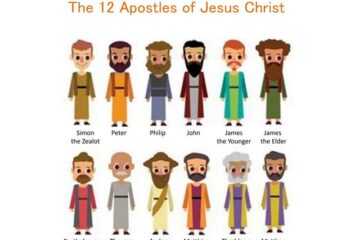The text in this passage of 2 Corinthians represents a dichotomy of the attitudes between a Christian who is walking in the light and a person who has his feet planted solidly in the world. “For godly grief produces a repentance that leads to salvation without regret, whereas worldly grief produces death.” (2Co 7:10)
The differences here come with examples in scripture in both the old and new testaments. Let’s discuss some scriptural examples. When King Saul had conquered the Amalekites, he disobeyed the Lord’s instructions in sparing their king and the choicest of their flocks and herds. He was confronted by the prophet Samuel. Saul made excuses to justify his sin which is, in fact, a natural tendency of man. He insisted that he had obeyed the Lord and attempted to shift the blame. He claimed that saving the flocks for sacrifice to the Lord was the people’s idea. It was then that Samuel uttered these memorable words, “Behold, to obey is better than sacrifice.” (1 Samuel 15:22) Saul admitted to the prophet, “I have sinned,” yet he asked to be honored in the sight of his elders. He wanted to avoid public reproach to save face. He wanted his reputation to remain intact. This is pride, arguably one of the worst of sins. He confessed his sin yet remained selfish to the end. This represents worldly sorrow.
When King David was confronted by the prophet Nathan over his sins (2Sam. 12), his reaction was completely different. His sin was grievous and barbaric, for he had not only committed adultery with a married woman, he then arranged the death of her husband as a cover up. Now his crimes were revealed, and David became tearfully remorseful. He confessed, “I have sinned against the Lord!” He then cried out to the Lord, fasted, and laid upon the ground day and night for seven days, pleading for the life of his infant son. David was not concerned about himself. He cared nothing about what others thought. He grieved before God about the effect his sin had on others. David’s confession and repentance before God are vividly displayed in both Psalm 32 and Psalm 51. Here we see his heart, as he cries out “Against You, You only, I have sinned, and done what is evil in Your sight.” (51:4) Again he says, “The sacrifices of God are a broken spirit; A broken and a contrite heart, O God, You will not despise.” (51:17) There is no trace of selfishness in David’s words.
In the New Testament we have the example of Judas Iscariot who betrayed the Lord (Mat. 26:14-16) and attempted to return the money (30 pieces of silver) he received to the chief priests (Mat. 27:3-6) as penance of his sin instead of going to Jesus whom he betrayed and penitently confess his sin. This is worldly sorrow to its core and it is likely that Judas was too embarrassed to face the Lord, thus caring more about himself than about his sin before God. Peter on the other hand also betrayed the Lord by denying his association to Him. Yet his remorse was godly in that he repented in tears and gave his life in support of the gospel message. Real repentance is a change of heart that allows a person to turn completely from their sin and turn back to God. It is a form of “emptying oneself” of that which makes them impure. Repentance leads to salvation and life. But if one’s remorse and regret remain selfish and self-centered, such sorrow only brings death. It is this that Paul speaks of in distinguishing godly sorrow over worldly sorrow and the distinction means spiritual life or death.
When considering the sorrow you have because of sin, ask yourself if you’re sorry because of the consequences, that you got caught, or your reputation is now tarnished, or if you’re sorry because you put the cross of Christ to shame as a professed Christian and that you’ve sinned against the almighty God?!


